Science & Tech
-

‘I exist solely for you, remember?’
Researchers detail 6 ways chatbots seek to prolong ‘emotionally sensitive events’

-
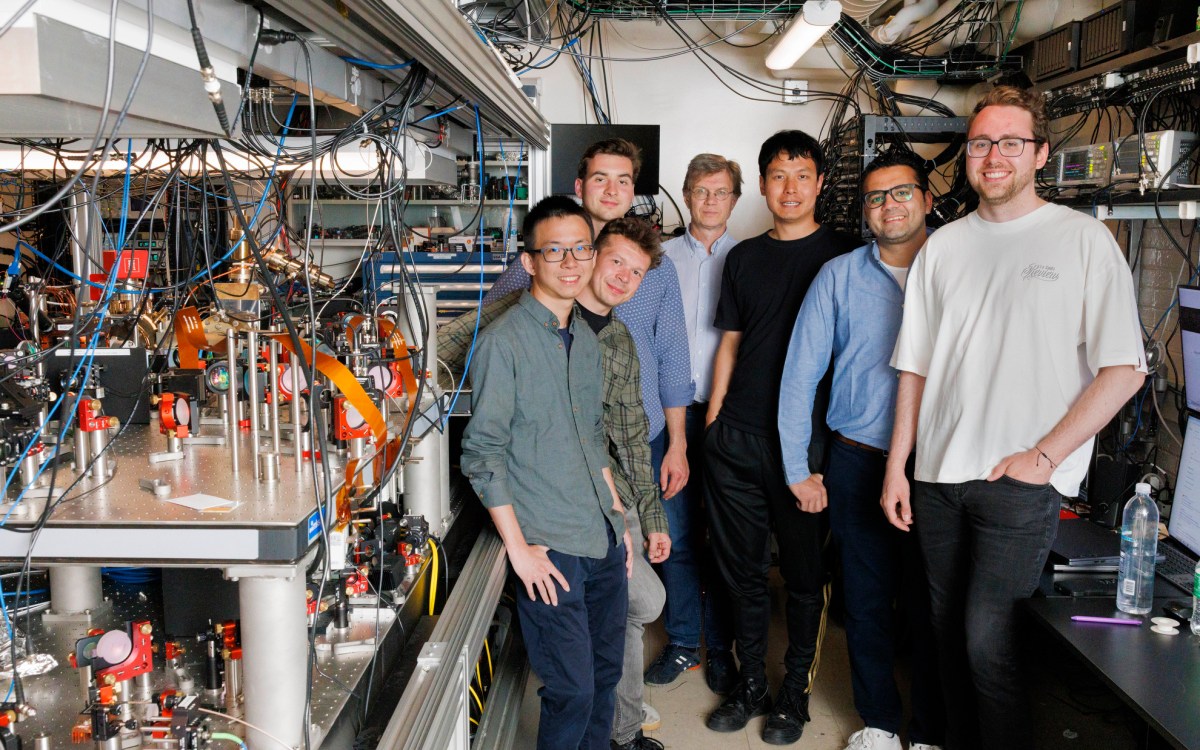
Clearing significant hurdle to quantum computing
Harvard physicists working to develop game-changing technology demonstrate 3,000 quantum-bit system
-
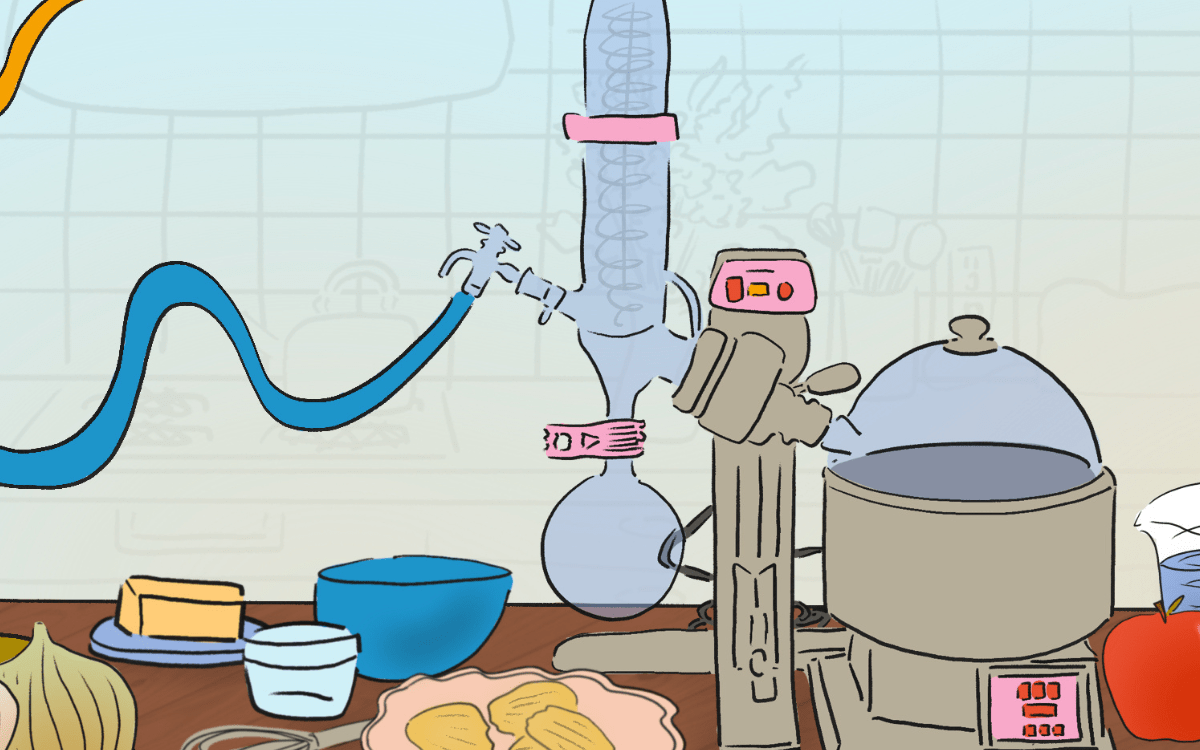
Think you understand kitchen science?
Our research-backed quiz will put your cooking knowledge to the test.
-
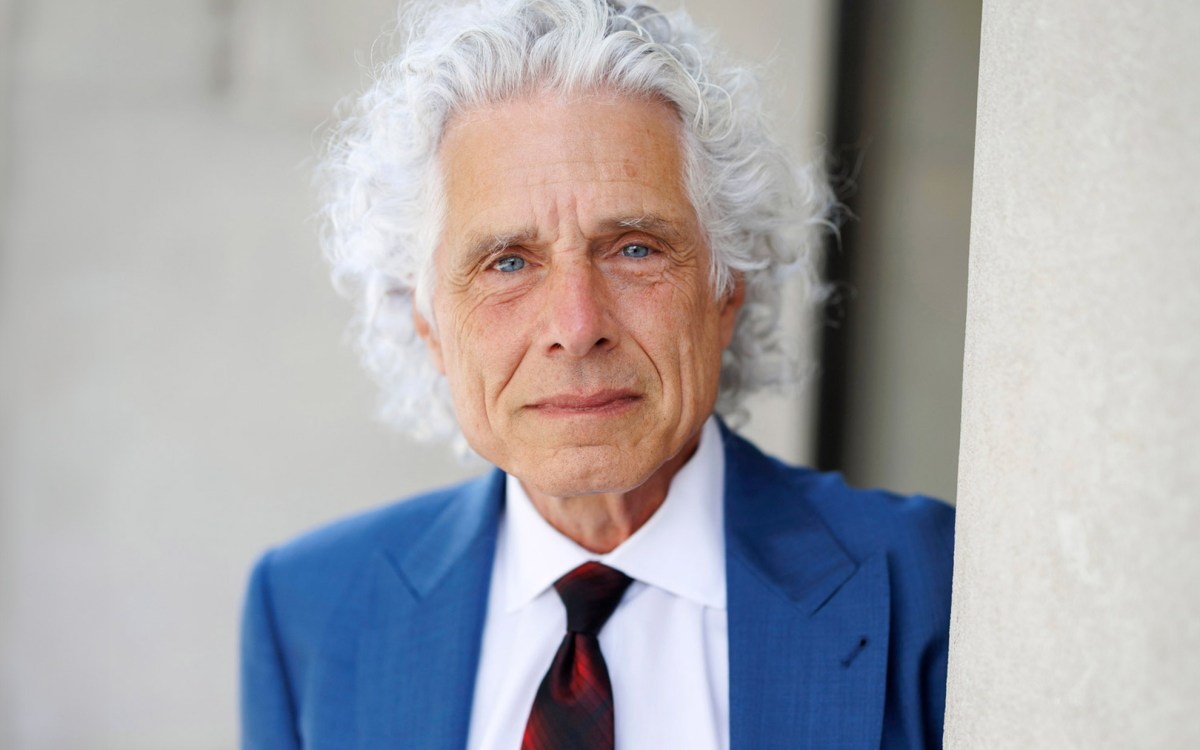
Why is your head not exploding? Steven Pinker can explain.
Cognitive psychologist reveals uncommon depths of common knowledge in new book
-
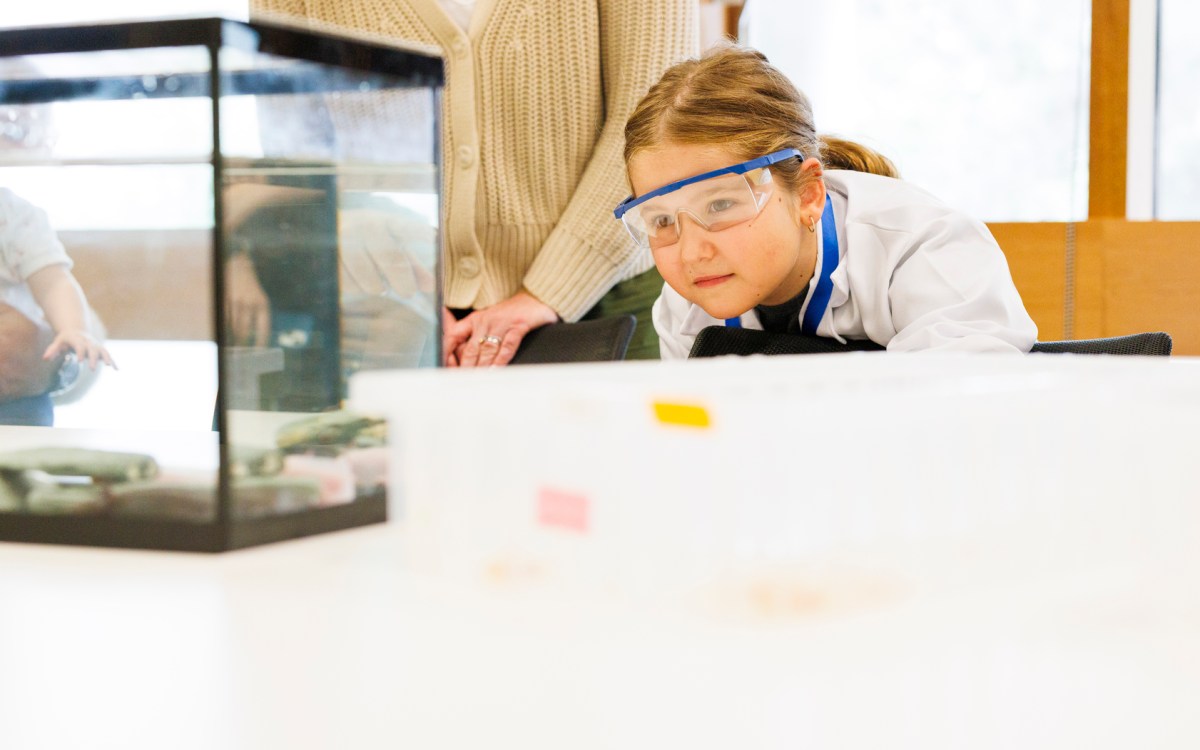
When your research donor is 6
First-grader raises $1,000 for axolotl research, meets her scientist hero — and maybe gets taste of what she wants to do when she grows up
-
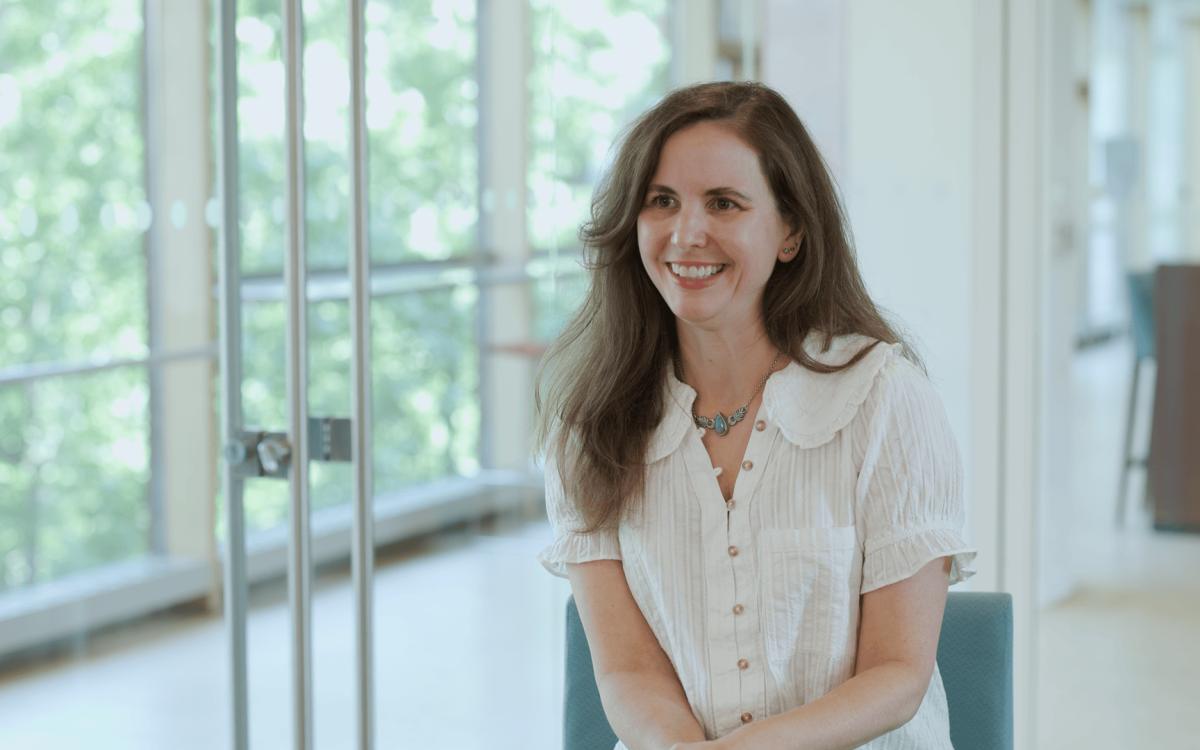
‘It feels very personal’
Jessica Whited overcame many obstacles to become a scientist, and her work was rooted in family’s blue-collar history. Then came funding cuts.
-
Space telescope captures cosmic ‘Mountains of Creation’
Captured by the Spitzer Space Telescope’s infrared eyes, a new majestic image resembles the iconic “Pillars of Creation” picture taken of the Eagle Nebula in visible light by NASA’s Hubble…
-
Cosmic cloudshine
Hubble’s iconic images include many shots of cosmic clouds of gas and dust called nebulae. For example, the famous “Pillars of Creation” mark the birthplace of new stars within the…
-
Study shows escalating climate change impacts
The Center for Health and the Global Environment at Harvard Medical School, along with co-sponsors Swiss Re and the United Nations Development Programme, has released a study showing that climate…
-
Taking a look at how ant (and human) societies might grow
Edward O. Wilson has learned a great deal about life by studying ant societies. In this knowledge, he finds parallels between the social interactions of insects and those of birds,…
-
First edition of HapMap released
A flurry of high-profile scientific manuscripts published in October 2005 describe both the content and uses of HapMap, a catalog that maps human genetic variation and relates it both to…
-
Mercury advisories may do more harm than good
A study warns that if advisories cause fish consumption in the general public to drop out of fear about the effects of mercury, substantial nutritional benefits could be lost. The…
-
It takes three Smithsonian observatories to decipher one mystery object
In an exercise that demonstrates the power of a multiwavelength investigation using diverse facilities, astronomers at the Harvard-Smithsonian Center for Astrophysics (CfA) have deciphered the true nature of a mysterious…
-
Black holes aren’t so black
As gas is pulled into a black hole by its strong gravitational force, the gas heats up and radiates. That radiation can be used to illuminate the black hole and…
-
Lukin illuminates quantum science
Mikhail Lukin thinks that devices based on quantum science are at the same stage as radios were about 100 years ago. To catch up, the recently tenured professor of physics…
-
Born to add
In experiments, 5-year-olds, who had no real experience using number symbols, “added” two arrays of dots and compared them to a third array. When researchers replaced the third array of…
-
Ferreting out the first stars
The first stars are so distant and formed so long ago that they are invisible to our best telescopes. Until they explode. Hypernovas (more powerful cousins of supernovas) and their…
-
First baby photo of stellar twins
Newborn stars are difficult to photograph. They tend to hide in the nebulous stellar nurseries where they formed, enshrouded by thick layers of dust. Now, Smithsonian astronomer T.K. Sridharan (Harvard-Smithsonian…
-
Survey of Katrina evacuees in Houston: Half trapped in homes waited three days or more for rescue
One-third (34 percent) of Katrina evacuees in a survey reported that they were trapped in their homes and had to be rescued. Half (50 percent) of those who were trapped…
-
Fastest pulsar speeding out of galaxy
A speeding, superdense neutron star somehow got a powerful “kick” that is propelling it completely out of our Milky Way Galaxy into the cold vastness of intergalactic space. Its discovery…
-
How to build a big star
The most massive stars in our galaxy weigh as much as 100 small stars like the Sun. How do such monsters form? Do they grow rapidly by swallowing smaller protostars…
-
Genome scanning technique spots disease risk
A new technique, admixture mapping, takes advantage of the higher-risk genetic segments from one population that show up in the other through generations of racial mixing. The presence of higher-risk…
-
Harvard, MGH researchers track egg cell production to marrow
In a series of experiments on sterile female mice, Massachusetts General Hospital (MGH) researchers were able to restore egg production by transplanting bone marrow from fertile mice. The researchers believe…
-
Implantable chips bear promise, but privacy standards needed
Writing in the July 28, 2005 edition of the New England Journal of Medicine, John Halamka, M.D., chief information officer at BIDMC and Harvard Medical School and an emergency room…
-
Judah M. Folkman, MD
In the early 1970s Folkman refined his theory that tumors have the capability to grow their own blood vessels, thereby obtaining the nourishment they need to keep growing in a body. Folkman never quit thinking about why this happens and how he might use that information to treat cancer patients.
-
Witnessing gun violence significantly increases the likelihood that a child will also commit violent crimes
“Based on this study’s results, showing the importance of personal contact with violence, the best model for violence may be that of a socially infectious disease,” says Felton Earls, MD,…
-
Amateur and professional astronomers team to find new planet
Astronomer Scott Gaudi of the Harvard-Smithsonian Center for Astrophysics believes that microlensing has the potential for wide use in the future: “With improving technologies and techniques, the first Earth-sized planet…
-
Robotic telescope penetrates heart of universe’s most powerful explosion
Cullen Blake, a graduate student at the Harvard-Smithsonian Center for Astrophysics and lead author on the paper, said that the simultaneous observation of infrared light with a gamma-ray burst was…
-
Intimate partner violence
The study’s lead author, Megan Gerber, a practicing physician at Cambridge Health Alliance and instructor of medicine at Harvard Medical School, notes: “Our study hopes to raise physician awareness of…
-
Student makes cableless cable
Matthew DePetro ’05 earned top honors for his senior design project, “Wireless Cable Television.” The first-prize entry “untethers” standard cable TV and even eliminates the need for a wall outlet.…
-
Simulations show growth of black holes
Using a new computer model of galaxy formation, researchers have shown that growing black holes release a blast of energy that fundamentally regulates galaxy evolution and black hole growth itself.…
-
E.O. Wilson, “Ant Man”
E. O. Wilson reflects on insect societies, human society, and the importance of biodiversity.
-
Message to marathoners: Watch your fluid intake!
The study singled out substantial weight gain while running, long race duration, and a lower body mass index as the primary risk factors for hyponatremia in runners. Researchers suggest that…
-
Case of Sedna’s ‘missing moon’ solved
In trying to solve the riddle of Sedna’s “missing moon,” scientists Scott Gaudi, Krzysztof (Kris) Stanek and colleagues at the Harvard-Smithsonian Center for Astrophysics took measurements that have cleared up…
-
Scientists find molecular pathway suspected in precancerous stomach lesions
Ramesh Shivdasani, M.D., Ph.D., of Dana-Farber, said the finding “opens a window that could help us eventually interfere with these pathways when they become abnormal. It should give us a…
-
Human skull is 7 million years old
When a 7-million-year-old skull was first found, Daniel Lieberman, a professor of anthropology at Harvard, called it “one of the greatest discoveries of the past 100 years.” After studying new…


